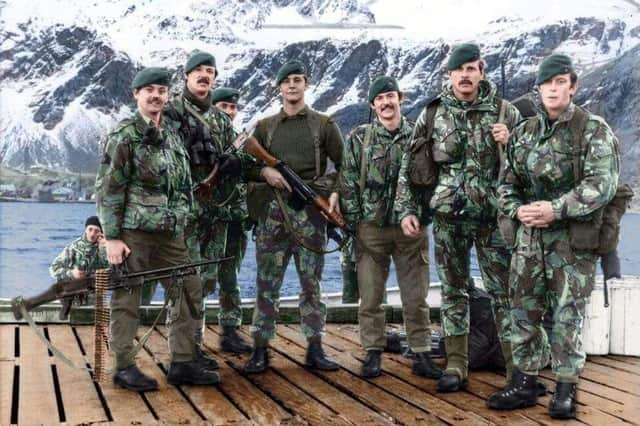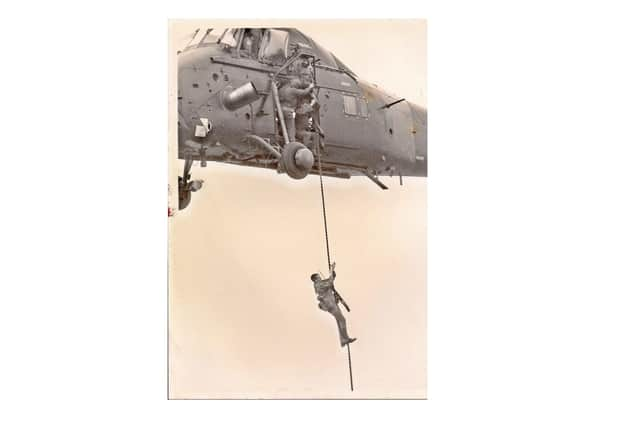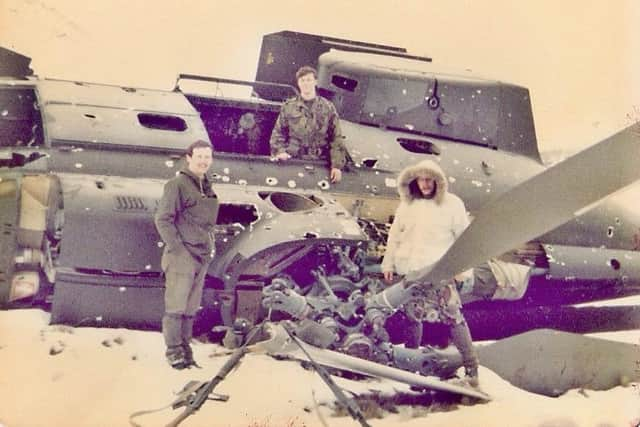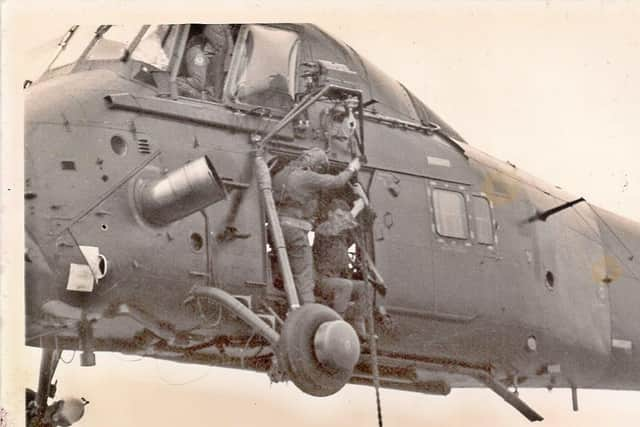Royal Marine who dodged death in the Falklands hails his late dad as his 'guardian angel' - and describes meeting Argentine prisoner of war who partied in Portsmouth


Ian Tennant was just 18 years and four months old when he was sent to war, having completed his basic training four days after his 18th birthday.
The young Commando was part of a small team of Marines embarked on Portsmouth-based destroyer HMS Antrim – which played a pivotal role in several daring missions during the conflict.


Advertisement
Hide AdAdvertisement
Hide AdHe was also on board the ship on May 20 when she deployed special forces at Fanning Head to kick off the landing operations to retake the Falklands.
Having successfully deployed troops, the ship then entered the aptly-named ‘Bomb Alley’ in San Carlos Bay, where she was hit by a 1,000lb bomb which failed to explode.
Proud Brummie Ian, now 58, said it was a miracle he wasn’t injured.
Recounting his memories to mark the 40th anniversary of the war, he said: ‘It was an experience you could never forget. There were a few guys wounded. But I was super lucky I didn't get a scratch.


Advertisement
Hide AdAdvertisement
Hide Ad‘There were some guys standing next to me that got shot. But I didn’t. It was just luck of the draw. I felt invincible.
‘My dad, Ron, had died of cancer three years before. It felt like my dad was my guardian angel. To not even be touched when some of the guys were getting shot. That was a miracle.’
Ian had only joined Antrim in February and was on Exercise Spring Train near Gibraltar when the Falklands was invaded.
Within hours, his ship was diverted south as the leading element of the British liberation fleet – and the first to venture into the war.


Advertisement
Hide AdAdvertisement
Hide AdAs head of the task group for ‘Operation Paraquet’ – the recapture of the island of South Georgia – Antrim, and her Wessex helicopter led the first-ever helicopter-only sinking of a submarine, the Santa Fe, and the landing of forces who forced the Argentine surrender.
Ian was part of a ‘rag-tag’ group of 50 troops, made up of Marines, SBS and SAS operators and specialist Commando gunners from 148 Battery Royal Artillery.
The team managed to seize the island with little resistance from the Argentine troops, many of whom were inexperienced conscripts.
Ian said: ‘We didn’t know what resistance we would meet. I remember looking at the watch my mum brought me. It was 15:35 and I was thinking what the lads back home were doing – my civvy mates.
Advertisement
Hide AdAdvertisement
Hide Ad‘They might have been having their Sunday lunch and could have been asleep on the settee and I was having the absolute thrill of a lifetime. It was a fairground ride that you couldn’t replicate.
‘By the Sunday evening the Argentinians had raised the flag. We thankfully didn’t get into any terrible combat situations. A lot of them were glad to see us to be honest.
Ian added in a bizarre twist of fate, the ammunition the Argentines had been equipped with had been made by Imperial Metal Industries in Birmingham – a company his aunt, Dot, worked for as a quality assurance checker.
‘My aunty had probably passed some of these rounds and now they were with the Argentines who could have possibly killed me,’ said Ian. ‘That’s the irony of warfare.’
Advertisement
Hide AdAdvertisement
Hide AdAnd in another odd twist of fate while guarding 200 Argentine prisoners of war, Ian met a sailor from the submarine Santa Fe who had links to Portsmouth and a popular Southsea haunt.
‘I met a bloke who was on the Sante Fe and had actually trained in Portsmouth. We got chatting and he used to go to Joanna’s nightclub. I couldn’t believe it, here I was 8,000 miles away I met a chap who used to go to Joanna’s.’
Ian, who lives in Newquay, Cornwall, is now a professional window cleaner and helps coach young boxers seeking to compete for England in his spare time.
To mark the 40th anniversary of the conflict, Ian released a series of never-before-seen photos of him during the conflict.
Comment Guidelines
National World encourages reader discussion on our stories. User feedback, insights and back-and-forth exchanges add a rich layer of context to reporting. Please review our Community Guidelines before commenting.